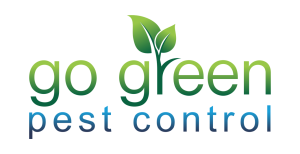Integrated Pest Management
 Integrated Pest Management (IPM) is a pest control strategy that uses a combination of techniques to manage pests in a way that is effective, economical, and environmentally sensitive. IPM is based on the principles of prevention, monitoring, and control.
Integrated Pest Management (IPM) is a pest control strategy that uses a combination of techniques to manage pests in a way that is effective, economical, and environmentally sensitive. IPM is based on the principles of prevention, monitoring, and control.
The goal of IPM is to minimize the use of pesticides and other chemicals, while still effectively managing pest populations. Some of the techniques used in IPM include:
- Cultural controls: This involves modifying the environment to make it less hospitable to pests, such as removing food and water sources, sealing cracks and crevices, and using landscaping practices that discourage pest infestations.
- Biological controls: This involves using natural predators, parasites, and pathogens to control pest populations. For example, introducing beneficial insects like ladybugs to control aphids on plants.
- Mechanical controls: This involves physically removing pests or preventing them from accessing an area, such as using screens or netting to keep pests out.
- Chemical controls: This involves the targeted use of pesticides or other chemicals to control pest populations. In IPM, chemical controls are used only as a last resort and are applied in a way that minimizes their impact on non-target species and the environment.
IPM programs are often used in agricultural settings, but can also be applied in homes, schools, and other settings where pest infestations are a problem. By using a combination of techniques and focusing on prevention and monitoring, IPM can effectively manage pest populations while reducing the use of harmful chemicals.
Pest control companies are businesses that provide services for the control, prevention, and extermination of pests such as insects, rodents, and other unwanted wildlife. These companies typically offer a range of services, including inspection, identification, treatment, and prevention of pest infestations.
When looking for a pest control company, it is important to consider the following factors:
- Experience and reputation: Look for a company that has a proven track record of success in dealing with pest infestations. Check reviews and ratings from previous customers to get an idea of the company’s reputation.
- Licenses and certifications: Make sure the company has the necessary licenses and certifications to perform pest control services in your area. This ensures that they are following all applicable laws and regulations.
- Service offerings: Different pest control companies offer different services, so make sure the company you choose offers the specific services you need.
- Safety and environmental concerns: Ask the company about their policies on safety and the environment. Make sure they use products and methods that are safe for people, pets, and the environment.
- Customer service: Choose a company that offers excellent customer service and is responsive to your questions and concerns.
By considering these factors, you can find a pest control company that will effectively address your pest problem while providing you with peace of mind.
